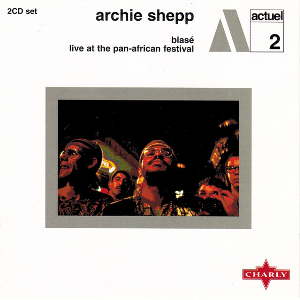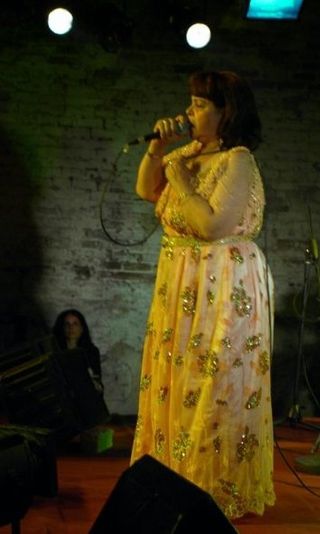
The Society of the Muslim Brothers, better known as the Muslim Brotherhood is a transnational Sunni Islamist organization founded in Egypt by Islamic scholar and schoolteacher Hassan al-Banna in 1928. Al-Banna's teachings spread far beyond Egypt, influencing today various Islamist movements from charitable organizations to political parties.
This is a list of Sufi orders (Tariqas) in Senegal. They are active Muslim organizations that can also be found in many other parts of Africa and the Islamic world. Their members are mainly Wolofs, Fulas and Tocouleurs.

Raï, sometimes written rai, is a form of Algerian folk music that dates back to the 1920s. Singers of Raï are called cheb as opposed to sheikh, the name given to Chaabi singers. The tradition arose in the city of Oran, primarily among the poor. Traditionally sung by men, by the end of the 20th century, female singers had become common. The lyrics of Raï have concerned social issues such as disease and the policing of European colonies that affected native populations.
Moroccan music varies greatly between geographic regions and social groups. It is influenced by musical styles including Arab, Berber, Andalusi, Mediterranean, Saharan, West African, and others.

The Movement of Society for Peace, sometimes known by its shortened form Hamas, is a Sunni Islamist party in Algeria, led by Mahfoud Nahnah until his death in 2003. Its current leader is Abderrazak Makri. It is an offshoot of the Muslim Brotherhood.

The Islamic Salvation Front was an Islamist political party in Algeria. The party had two major leaders representing its two bases of its support; Abbassi Madani appealed to pious small businessmen, and Ali Belhadj appealed to the angry, often unemployed youth of Algeria.

A zawiya or zaouia is a building and institution associated with Sufis in the Islamic world. It can serve a variety of functions such a place of worship, school, monastery and/or mausoleum. In some regions the term is interchangeable with the term khanqah, which serves a similar purpose. In the Maghreb, the term is often used for a place where the founder of a Sufi order or a local saint or holy man lived and was buried. In the Maghreb the word can also be used to refer to the wider tariqa and its membership.

Tékitoi is a studio album released in 2004 by the Algerian musician Rachid Taha. The title is a nonstandard spelling of the French question "Tu es qui, toi?" which might be pronounced in speech as "T'es qui, toi?" and, in the context of this song, means "Who do you think you are?" informally.

The Darqawiyya or Darqawi Sufi order is a revivalist branch of the Shadhiliyah brotherhood which originated in Morocco. The Darqawa comprised the followers of Sheikh Muhammad al-Arabi al-Darqawi (1760–1823) of Morocco. The movement, which became one of the leading Sufi orders (tariqa) in Morocco, exalted poverty and asceticism. It gained widespread support among the rural populations and the urban lower classes. Its popularity was increased by its use of musical instruments in its rituals. In both Morocco and [ Algeria, the Darqawiyya were involved in political activities and protest movements.
Jil Jilala is a Moroccan musical group which rose to prominence in the 1970s among the movement created by Nass El Ghiwane and Lem Chaheb. Jil Jilala was founded in Marrakech in 1972 by performing arts students Mohamed Derhem, Moulay Tahar Asbahani, Sakina Safadi, Mahmoud Essaadi, Hamid Zoughi and Moulay Abdelaziz Tahiri. In 1974, they released their first record Lyam Tnadi on the Atlassiphone label. The songs "Leklam Lemrassaa," "Baba Maktoubi," "Ha L'ar a Bouya," "ah ya Jilala" and "Chamaa" quickly achieved the status of popular 'classics.'

The Isawiyya is a religious Islamic mystical brotherhood founded in Meknes, Morocco, by Sheikh al-Kamil Mohamed al-Hadi ben Issa (1465–1526), best known as the Shaykh Al-Kamil, or "Perfect Sufi Master". The terms Aissawiyya (`Isawiyya) and Aissawa (`Isawa), derive from the name of the founder, and respectively designate the brotherhood and its disciples.

Xavier Coppolani (1866-1905) was a French military and colonial leader, who was instrumental in the colonial occupation and creation of modern-day Mauritania.

Religion in Algeria is dominated by Muslims, with nearly ninety-eight of the population adhering to Sunni Islam of the Maliki school of jurisprudence, as of 2020. The remainder include other Islamic schools and branches, Christian denominations, Baháʼís and Jews. Estimates of the Christian population range from 71,000 to 200,000. The latest available estimates suggest a Baháʼí population of 3,300, and a Jewish community of less than 200 people.

Live at the Pan-African Festival is a live recording of Archie Shepp's performance in Algiers on July 29–30, 1969, when his free jazz group was complemented by several North African musicians.

Beni Snous or Aït Snous is a town and commune in Tlemcen Province in northwestern Algeria.

Imad Touil is an Algerian middle distance runner who specialises in the 1500 metres.

Sheikh Hamada was an Algerian singer. He was one of the founders of the gasba music.

Cheikha Rabia is an Algerian singer born in Relizane in Algeria.
Šupelka is a Macedonian traditional woodwind instrument very similar to the kaval. It is mostly made of walnut, cornel, ash, or maple wood. The šupelka plays a chromatic scale, with the exception of the first note of the lower octave. In the lower register, the šupelka gives a soft and pleasant sound, while the upper register tone is sharp and high-pitched.

The Jilala (جيلالة), or Tariqa Jilalia is an ecstatic and music-therapeutic tariqa of Morocco of Sufi origin. It should not be confused with the folk revival group Jil Jilala.















